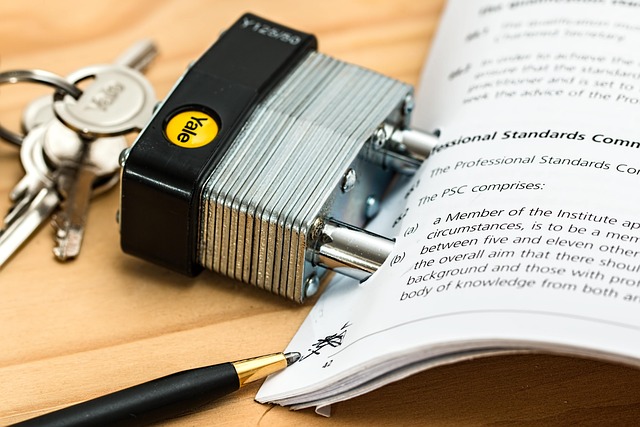Understanding lease terms is crucial for students renting properties, as it empowers them to navigate their agreements effectively. A comprehensive student lease guide should cover key concepts like rent payments (aligned with academic calendars), maintenance responsibilities, subletting restrictions, termination procedures, and dispute resolution methods. By familiarizing themselves with these clauses, students can protect their rights, avoid penalties, and foster positive relationships with landlords or property managers.
As a student navigating the world of student rentals, understanding your lease is crucial. This comprehensive guide aims to demystify key lease clauses every student should know. From defining essential lease terms and outlining obligations and rights to detailing rent payment conditions, maintenance responsibilities, and termination procedures, we’ve compiled a student lease guide that equips you with the knowledge to make informed decisions. By familiarizing yourself with these rental contract terms, you can ensure a smooth tenancy experience and protect your legal rights as a tenant.
- Definition of Key Lease Terms
- Understanding Your Obligations: Rights and Responsibilities
- Rent and Payment Conditions: Due Dates & Methods
- Maintenance and Repairs: Who's Responsible?
- Termination and Notice Periods: Moving Out Procedures
- Resolving Disputes: Know Your Legal Rights
Definition of Key Lease Terms

When a student is looking for accommodation, understanding the key lease terms in their rental agreement is essential. Lease terms explained in simple language can help students navigate their rights and responsibilities as tenants. Student rental agreements often include various clauses that cover topics like rent payment, maintenance, subletting, and termination of the lease, among others.
A student lease guide should make these concepts accessible. By familiarizing themselves with common rental contract terms, students can ensure they’re protected and aware of their options. Understanding leases is crucial for avoiding unexpected issues and fostering a positive relationship with landlords or property managers.
Understanding Your Obligations: Rights and Responsibilities

When renting a property as a student, it’s crucial to understand your obligations and rights as outlined in the student rental agreements. Lease terms explained can vary widely, so a thorough understanding of your student lease guide is essential. This includes recognizing both your responsibilities and the protections offered by various lease clauses students may encounter.
Knowing your rental contract terms allows you to maintain a safe and comfortable living environment. It empowers you to keep track of rent payments, property maintenance requests, and other important obligations. At the same time, it equips you to identify and advocate for your rights as a tenant, ensuring a fair and positive rental experience.
Rent and Payment Conditions: Due Dates & Methods

When it comes to rent and payment conditions in a student rental agreement, understanding due dates and accepted payment methods is paramount. Many lease terms explained specifically outline when rent payments are due, usually on a monthly basis, aligning with the academic calendar. Students should be aware of these crucial details to avoid late fees or potential disruptions in their living arrangements.
The student lease guide typically includes various rental contract terms concerning payment methods. Common practices accept direct debits, checks, and online payments through secure platforms. Some leases might also offer the flexibility of automatic renewals or electronic rent payments, streamlining the process for students. Keeping track of these conditions ensures a smooth rental experience and fosters a positive relationship with landlords or property managers.
Maintenance and Repairs: Who's Responsible?

When renting a property as a student, understanding who is responsible for maintenance and repairs is crucial. Lease terms explained often include provisions on this front, so it’s essential to read your rental contract terms carefully. In many cases, students think they are solely responsible for all repairs, but this isn’t always the case. Student lease guide clauses can stipulate that certain routine maintenance and minor repairs are the landlord’s responsibility, while major fixes or damage caused by negligence (e.g., flooding from a broken pipe due to forgetting to turn off the water) fall on the tenant’s shoulders.
Knowing these rental contract terms is vital for managing your budget as a student. Student rental agreements should clearly outline what constitutes normal wear and tear versus an obligation for repair or replacement. Understanding leases in this regard can help you avoid unexpected costs and protect you from unfair charges.
Termination and Notice Periods: Moving Out Procedures

When it comes to moving out, students should be aware of the termination and notice periods outlined in their student rental agreements. Most leases specify a required notice period — typically a certain number of days — that tenants must give before vacating the property. This period allows landlords time to find new tenants and ensures a smooth transition. For example, if your lease states a 30-day notice is required, you must inform your landlord 30 days in advance of your intended move-out date.
Understanding these lease terms explained is crucial for students to avoid any potential penalties or disputes. It’s important to check the specific rental contract terms and be clear on the expectations around moving out, as defined by the student lease guide. This proactive approach will help ensure a professional and respectful exit from your rented space.
Resolving Disputes: Know Your Legal Rights

When it comes to student rental agreements, knowing your legal rights is crucial. Leases, often complex documents with various terms and conditions, can sometimes lead to disputes between tenants and landlords. Understanding lease clauses related to dispute resolution is a vital part of being an informed tenant. Many standard lease terms explained in student rental agreements include provisions for mediation or arbitration as the primary methods of resolving conflicts. These alternative dispute resolution (ADR) processes offer advantages such as cost-effectiveness, speed, and privacy compared to going through traditional litigation.
As a student, familiarizing yourself with these mechanisms can empower you to effectively navigate any issues that may arise during your tenancy. It’s important to understand the specific rental contract terms related to these clauses. A comprehensive student lease guide should outline the steps to take if you encounter problems, ensuring you exercise your rights and reach fair resolutions.






